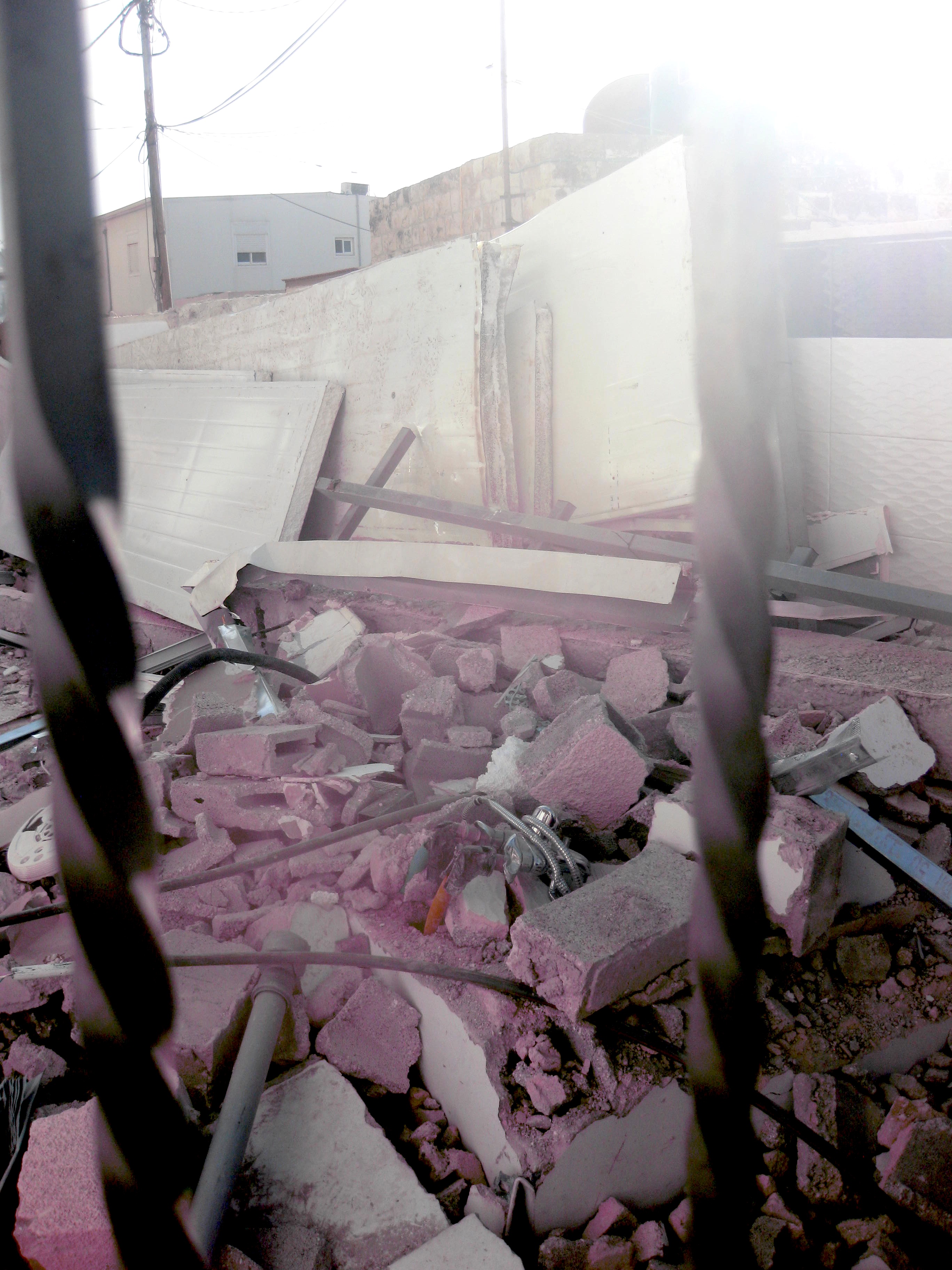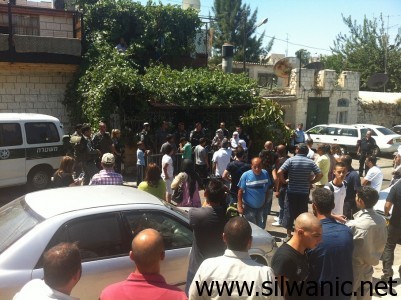Tag: Silwan
-
Silwan Occupied
25th December 2016 | International Solidarity Movement |Huwarra team | occupied Palestine Yusef Sheukhy is one out of many Palestinians in Silwan who has already suffered much from the Israeli presence in occupied East Jerusalem. Five of his children have spent time in Israeli jails; the most recent released on 27 May this year. And on…
-
Family home raided in Silwan after settler attack on children
By SILWANIC 28 August, 2012 | SILWANIC, Silwan, Jerusalem Israeli forces raided a Palestinian family home in Silwan on Saturday, 18 September. The Karki family were accused by armed forces of attacking nearby Israeli settlers. Ahmad Siyam told Silwanic that a group of Palestinian children playing in the street were in fact attacked by settlers,…
-
On the eve of Land Day: Al Quds anticipates the Global March
by Johnny 29 March 2012 | International Solidarity Movement, West Bank March 30 is Land Day in Palestine. The events of the day annually commemorate the events of 1976, when Israeli authorities seized massive quantities of land from Palestinian owners, and then killed several and injured dozens to crack down on the general strike called…


